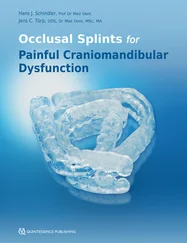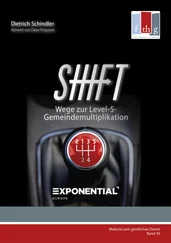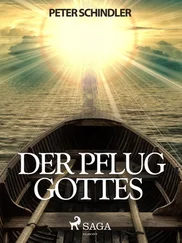It is clear from the way all Brinnlitz prisoners spoke of it that this interment had enormous moral force within the camp. The distorted corpses who were unloaded from the freight cars had seemed less than human. Looking at them, you became frightened for your own precarious humanity. The inhuman thing was beyond feeding, washing, warming. The one way left to restore it—as well as yourself—to humanity was through ritual. Levartov’s rites, therefore, the exalted plainchant of Kaddish, had a far larger gravity for the Brinnlitz prisoners than such ceremonies could ever have had in the relative tranquillity of prewar Cracow.
To keep the Jewish burial ground tidy in case of future deaths, Oskar employed a middle-aged SS Unterscharführer and paid him a retainer.
Emilie Schindler had transactions of her own to make. Carrying a clutch of false papers supplied by Bejski, she had two prisoners load up one of the plant trucks with vodka and cigarettes, and ordered them to drive her to the large mining town of Ostrava up near the border of the Government General. At the military hospital she was able to make an arrangement with various of Oskar’s contacts and to bring back frostbite ointments, sulfa, and the vitamins Biberstein had thought beyond procuring. Such journeys now became regular events for Emilie. She was growing to be a traveler, like her husband.
After the first deaths, there were no others. The Goleszów people were Mussulmen, and it was a first principle that the condition of Mussulmen could not be reversed. But there was some intractability in Emilie which would not accept it. She harried them with her bucketfuls of farina. “Out of those rescued from Goleszów,” said Dr. Biberstein, “not one would have stayed alive without her treatment.” The men began to be seen, trying to look useful, on the factory floor. One day a Jewish storeman asked one of them to carry a box out to a machine on the workshop floor. “The box weighs thirty-five kilos,” said the boy, “and I weigh thirty-two. How in the hell can I carry it?”
To this factory of ineffective machines, its floor strewn with scarecrows, Herr Amon Goeth came that winter, following his release from prison, to pay his respects to the Schindlers. The SS court had let him out of prison in Breslau because of his diabetes. He was dressed in an old suit that may have been a uniform with the markings stripped off. There are rumors about the meaning of this visit, and they persist to this day. Some thought that Goeth was looking for a handout, others that Oskar was holding something for him—cash or kind from one of Amon’s last Cracow deals in which Oskar had perhaps served as Amon’s agent. Some who worked close to Oskar’s office believe that Amon even asked for a managerial post at Brinnlitz. No one could say that he did not have the experience. In fact, all three versions of Amon’s motives in coming down to Brinnlitz are possibly correct, though it is unlikely that Oskar ever acted as Amon’s agent.
As Amon stepped through the gate of the camp, it could be seen that prison and tribulation had thinned him down. The fleshiness had vanished from his face. His features were more like those of the Amon who had come to Cracow in the New Year of 1943 to liquidate the ghetto, yet they were different too, for they were jaundice-yellow and prison-gray. And if you had the eyes for it, if you dared to look, you saw a new passivity there. Some prisoners, however, glancing up from their lathes, glimpsed that figure from the pit of their foulest dreams, there unannounced, passing by the doors and windows, proceeding through the factory yard toward Herr Schindler’s office. Helen Hirsch sat galvanized, wanting nothing except that he should vanish again. But others hissed him as he passed, and men bent at their machines and spat. More mature women lifted their knitting toward him like a challenge. For that was vengeance— to show that in spite of all his terror, Adam still delved and Eve span.
If Amon wanted a job at Brinnlitz— and there were few other places a Hauptsturmführer under suspension could go—Oskar either talked him out of it or bought him off. In that way, this meeting was like all their others.
As a courtesy the Herr Direktor took Amon on a tour of the plant, and on this circuit of the workshop floor, the reaction against him was stronger still. Back in the office, Amon was overheard demanding that Oskar punish the inmates for their disrespect, and Oskar was heard rumbling away, pledging that he would do something about the pernicious Jews and expressing his own undiminished respect for Herr Goeth.
Though the SS had let him out of prison, the investigation of his affairs was still in progress. A judge of the SS Court had come to Brinnlitz in the past few weeks to question Mietek Pemper again about Amon’s managerial procedures.
Before the interrogation began, Commandant Liepold had muttered to Pemper that he’d better be careful, that the judge would want to take him to Dachau for execution after he’d been drained of evidence. Wisely, Pemper had done all he could to convince the judge of the unimportance of his work in the main office at Płaszów.
Somehow, Amon had heard that the SS investigators had been pursuing Pemper. Soon after he arrived in Brinnlitz, he cornered his ci-devant typist in Oskar’s outer office and wanted to know what questions the judge had asked. Pemper believed, reasonably enough, that he could detect in Amon’s eyes resentment that his onetime prisoner was still a breathing source of evidence for the SS Court. Surely Amon was powerless here, thinned down, looking doleful in an old suit, washed up in Oskar’s office? But you couldn’t be sure. It was still Amon, and he had the habit of authority. Pemper said, “The judge told me I was not to talk to anyone about my interrogation.” Goeth was outraged and threatened to complain to Herr Schindler. That, if you like, was a measure of Amon’s new impotence. He had never had to go to Oskar before to appeal for the chastisement of a prisoner.
By the second night of Amon’s visit, the women were feeling more triumphant. He couldn’t touch them. They persuaded even Helen Hirsch of this. Yet her sleep was uneasy.
The last time Amon passed within sight of prisoners, it was on his way to be taken by car to the station at Zwittau. He had never in the past made three visits to any space without bringing some poor bastard’s world crashing down. It was clear now that he had no power at all. Yet still not everyone could look him in the face as he left. Thirty years later, in the sleep of Płaszów veterans from Buenos Aires to Sydney, from New York to Cracow, from Los Angeles to Jerusalem, Amon would still be rampaging. “When you saw Goeth,” said Poldek Pfefferberg, “you saw death.”
So, in his own terms, he was never an utter failure.
Oskar’s thirty-seventh birthday was celebrated by Oskar himself and all the prisoners.
One of the metalworkers had crafted a small box suitable for holding studs or cuff links, and when the Herr Direktor appeared on the workshop floor, the twelve-year-old Niusia Horowitz was pushed toward him to make a rehearsed speech in German. “Herr Direktor,” she said in a voice he had to stoop to hear. “All the prisoners wish you the very best for this your birthday.”
It was a Shabbat, which was apt, because the Brinnlitz people would always remember it as a festival. Early in the morning, about the time Oskar had begun celebrating with Martell cognac in his office and flourishing that insulting telegram from the engineers at Brno, two truckloads of white bread rolled into the courtyard. Some went to the garrison, even to the hung-over Liepold sleeping late in his house in the village. That much was necessary to stop the SS from grumbling about the way the Herr Direktor favored prisoners. The prisoners themselves were issued three-quarters of a kilo of the bread. They inspected it as they ate and savored it. There was some speculation about where Oskar had got it. Perhaps it could be partially explained by the goodwill of the local mill manager, Daubek, the one who turned away while Brinnlitz prisoners filled their pants with oatmeal. But that Saturday bread was truly celebrated more in terms of the magic of the event, of the wonder-working. Though the day is remembered as jubilant, there was in fact not so much cause for festive feeling. Sometime in the past week, a long telegram had been directed from Herr Commandant Hassebroeck of Gróss-Rosen to Liepold of Brinnlitz giving him instructions about the disposal of the population in the event the Russians drew near. There was to be a final selection, said Hassebroeck’s telegram. The aged and the halt were to be shot immediately, and the healthy were to be marched out in the direction of Mauthausen. Though the prisoners on the factory floor knew nothing of this telegram, they still had an unspecified fear of something like it. All that week there had been rumors that Poles had been brought in to dig mass graves in the woods beyond Brinnlitz. The white bread seemed to have come as an antidote to that rumor, a warranty of all their futures. Yet everyone seemed to know that an era of dangers more subtle than those of the past had begun.
Читать дальше












